#AWS DevOp
Explore tagged Tumblr posts
Text
Mastering AWS DevOps in 2025: Best Practices, Tools, and Real-World Use Cases
In 2025, the cloud ecosystem continues to grow very rapidly. Organizations of every size are embracing AWS DevOps to automate software delivery, improve security, and scale business efficiently. Mastering AWS DevOps means knowing the optimal combination of tools, best practices, and real-world use cases that deliver success in production.
This guide will assist you in discovering the most important elements of AWS DevOps, the best practices of 2025, and real-world examples of how top companies are leveraging AWS DevOps to compete.
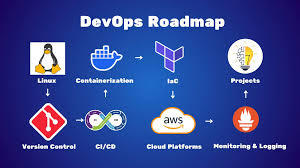
What is AWS DevOps
AWS DevOps is the union of cultural principles, practices, and tools on Amazon Web Services that enhances an organization's capacity to deliver applications and services at a higher speed. It facilitates continuous integration, continuous delivery, infrastructure as code, monitoring, and cooperation among development and operations teams.
Why AWS DevOps is Important in 2025
As organizations require quicker innovation and zero downtime, DevOps on AWS offers the flexibility and reliability to compete. Trends such as AI integration, serverless architecture, and automated compliance are changing how teams adopt DevOps in 2025.
Advantages of adopting AWS DevOps:
1 Faster deployment cycles
2 Enhanced system reliability
3 Flexible and scalable cloud infrastructure
4 Automation from code to production
5 Integrated security and compliance
Best AWS DevOps Tools to Learn in 2025
These are the most critical tools fueling current AWS DevOps pipelines:
AWS CodePipeline
Your release process can be automated with our fully managed CI/CD service.
AWS CodeBuild
Scalable build service for creating ready-to-deploy packages, testing, and building source code.
AWS CodeDeploy
Automates code deployments to EC2, Lambda, ECS, or on-prem servers with zero-downtime approaches.
AWS CloudFormation and CDK
For infrastructure as code (IaC) management, allowing repeatable and versioned cloud environments.
Amazon CloudWatch
Facilitates logging, metrics, and alerting to track application and infrastructure performance.
AWS Lambda
Serverless compute that runs code in response to triggers, well-suited for event-driven DevOps automation.
AWS DevOps Best Practices in 2025
1. Adopt Infrastructure as Code (IaC)
Utilize AWS CloudFormation or Terraform to declare infrastructure. This makes it repeatable, easier to collaborate on, and version-able.
2. Use Full CI/CD Pipelines
Implement tools such as CodePipeline, GitHub Actions, or Jenkins on AWS to automate deployment, testing, and building.
3. Shift Left on Security
Bake security in early with Amazon Inspector, CodeGuru, and Secrets Manager. As part of CI/CD, automate vulnerability scans.
4. Monitor Everything
Utilize CloudWatch, X-Ray, and CloudTrail to achieve complete observability into your system. Implement alerts to detect and respond to problems promptly.
5. Use Containers and Serverless for Scalability
Utilize Amazon ECS, EKS, or Lambda for autoscaling. These services lower infrastructure management overhead and enhance efficiency.
Real-World AWS DevOps Use Cases
Use Case 1: Scalable CI/CD for a Fintech Startup
AWS CodePipeline and CodeDeploy were used by a financial firm to automate deployments in both production and staging environments. By containerizing using ECS and taking advantage of CloudWatch monitoring, they lowered deployment mistakes by 80 percent and attained near-zero downtime.
Use Case 2: Legacy Modernization for an Enterprise
A legacy enterprise moved its on-premise applications to AWS with CloudFormation and EC2 Auto Scaling. Through the adoption of full-stack DevOps pipelines and the transformation to microservices with EKS, they enhanced time-to-market by 60 percent.
Use Case 3: Serverless DevOps for a SaaS Product
A SaaS organization utilized AWS Lambda and API Gateway for their backend functions. They implemented quick feature releases and automatically scaled during high usage without having to provision infrastructure using CodeBuild and CloudWatch.
Top Trends in AWS DevOps in 2025
AI-driven DevOps: Integration with CodeWhisperer, CodeGuru, and machine learning algorithms for intelligence-driven automation
Compliance-as-Code: Governance policies automated using services such as AWS Config and Service Control Policies
Multi-account strategies: Employing AWS Organizations for scalable, secure account management
Zero Trust Architecture: Implementing strict identity-based access with IAM, SSO, and MFA
Hybrid Cloud DevOps: Connecting on-premises systems to AWS for effortless deployments
Conclusion
In 2025, becoming a master of AWS DevOps means syncing your development workflows with cloud-native architecture, innovative tools, and current best practices. With AWS, teams are able to create secure, scalable, and automated systems that release value at an unprecedented rate.
Begin with automating your pipelines, securing your deployments, and scaling with confidence. DevOps is the way of the future, and AWS is leading the way.
Frequently Asked Questions
What distinguishes AWS DevOps from DevOps? While AWS DevOps uses AWS services and tools to execute DevOps, DevOps itself is a practice.
Can small teams benefit from AWS DevOps
Yes. AWS provides fully managed services that enable small teams to scale and automate without having to handle complicated infrastructure.
Which programming languages does AWS DevOps support
AWS supports the big ones - Python, Node.js, Java, Go, .NET, Ruby, and many more.
Is AWS DevOps for enterprise-scale applications
Yes. Large enterprises run large-scale, multi-region applications with millions of users using AWS DevOps.
1 note
·
View note
Text
64 vCPU/256 GB ram/2 TB SSD EC2 instance with #FreeBSD or Debian Linux as OS 🔥

38 notes
·
View notes
Text
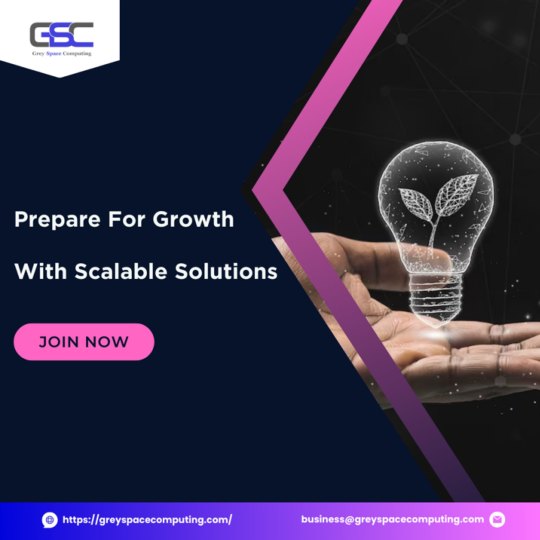
Growth is exciting, but only if your app can handle it! Cloud technology ensures your app scales effortlessly to meet increasing demand. 📈 Get ready for success! 🔗Learn more: https://greyspacecomputing.com/custom-mobile-application-development-services/ 📧 Visit: https://greyspacecomputing.com/portfolio
#GreySpaceComputing#CloudTech#AppScalability#cloudcomputing#cloud#technology#cybersecurity#aws#bigdata#devops#it#datacenter#azure#cloudstorage#linux#programming#software#tech#iot#cloudservices#coding#cloudsecurity#machinelearning#informationtechnology#datascience#business#python#security#microsoft#dataprotection
2 notes
·
View notes
Text
Uncover the power of AWS with our carousel of key findings! Dive into essential AWS statistics and unlock insights you didn't know you needed.



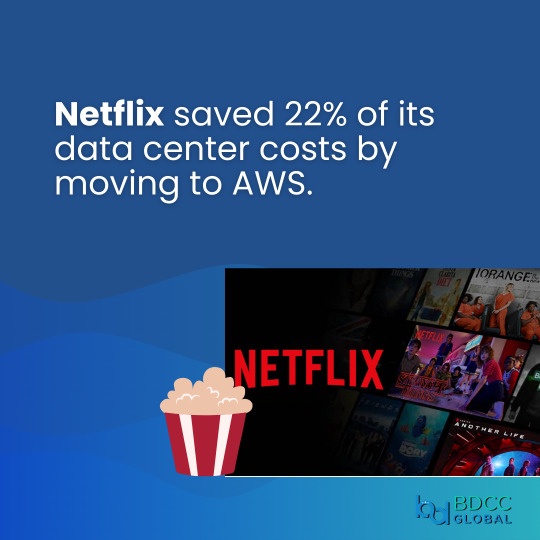
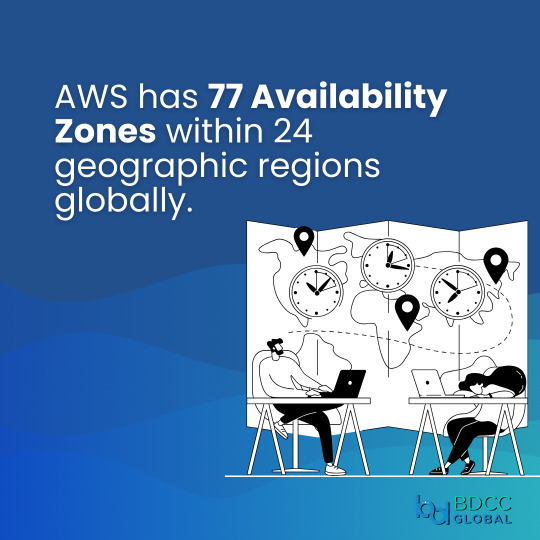
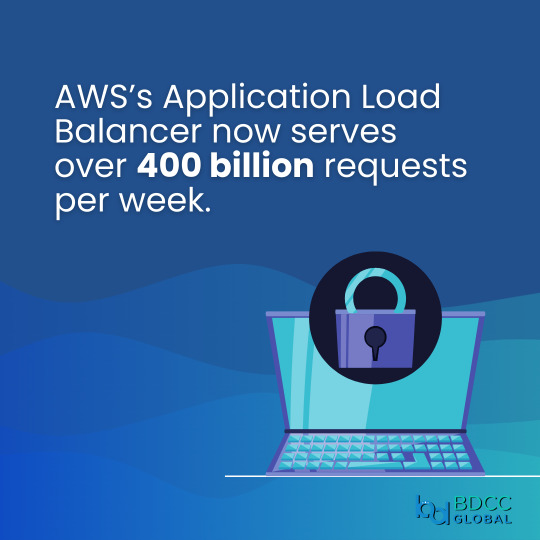
4 notes
·
View notes
Text


















🤝Hand holding support is available with 100% passing assurance🎯 📣Please let me know if you or any of your contacts need any certificate📣 📝or training to get better job opportunities or promotion in current job📝 📲𝗖𝗼𝗻𝘁𝗮𝗰𝘁 𝗨𝘀 : Interested people can whatsapp me directly ✅WhatsApp :- https://wa.aisensy.com/uemtSK 💯Proxy available with 100% passing guarantee.📌 🎀 FIRST PASS AND THAN PAY 🎀 ISC2 : CISSP & CCSP Cisco- CCNA, CCNP, Specialty ITILv4 CompTIA - All exams Google-Google Cloud Associate & Google Cloud Professional People Cert- ITILv4 PMI-PMP, PMI-ACP, PMI-PBA, PMI-CAPM, PMI-RMP, etc. EC Counsil-CEH,CHFI AWS- Associate, Professional, Specialty Juniper- Associate, Professional, Specialty Oracle - All exams Microsoft - All exams SAFe- All exams Scrum- All Exams Azure & many more… 📲𝗖𝗼𝗻𝘁𝗮𝗰𝘁 𝗨𝘀 : Interested people can whatsapp me directly ✅WhatsApp :- https://wa.aisensy.com/uemtSK
#ccna#ccnatraining#ccnacertification#cisco ccna#awscloud#aws course#devops#cybersecurity#salesforce#pmp certification#pmp training#pmp course#pmp exam
1 note
·
View note
Text
Unleashing Efficiency: Containerization with Docker
Introduction: In the fast-paced world of modern IT, agility and efficiency reign supreme. Enter Docker - a revolutionary tool that has transformed the way applications are developed, deployed, and managed. Containerization with Docker has become a cornerstone of contemporary software development, offering unparalleled flexibility, scalability, and portability. In this blog, we'll explore the fundamentals of Docker containerization, its benefits, and practical insights into leveraging Docker for streamlining your development workflow.
Understanding Docker Containerization: At its core, Docker is an open-source platform that enables developers to package applications and their dependencies into lightweight, self-contained units known as containers. Unlike traditional virtualization, where each application runs on its own guest operating system, Docker containers share the host operating system's kernel, resulting in significant resource savings and improved performance.
Key Benefits of Docker Containerization:
Portability: Docker containers encapsulate the application code, runtime, libraries, and dependencies, making them portable across different environments, from development to production.
Isolation: Containers provide a high degree of isolation, ensuring that applications run independently of each other without interference, thus enhancing security and stability.
Scalability: Docker's architecture facilitates effortless scaling by allowing applications to be deployed and replicated across multiple containers, enabling seamless horizontal scaling as demand fluctuates.
Consistency: With Docker, developers can create standardized environments using Dockerfiles and Docker Compose, ensuring consistency between development, testing, and production environments.
Speed: Docker accelerates the development lifecycle by reducing the time spent on setting up development environments, debugging compatibility issues, and deploying applications.
Getting Started with Docker: To embark on your Docker journey, begin by installing Docker Desktop or Docker Engine on your development machine. Docker Desktop provides a user-friendly interface for managing containers, while Docker Engine offers a command-line interface for advanced users.
Once Docker is installed, you can start building and running containers using Docker's command-line interface (CLI). The basic workflow involves:
Writing a Dockerfile: A text file that contains instructions for building a Docker image, specifying the base image, dependencies, environment variables, and commands to run.
Building Docker Images: Use the docker build command to build a Docker image from the Dockerfile.
Running Containers: Utilize the docker run command to create and run containers based on the Docker images.
Managing Containers: Docker provides a range of commands for managing containers, including starting, stopping, restarting, and removing containers.
Best Practices for Docker Containerization: To maximize the benefits of Docker containerization, consider the following best practices:
Keep Containers Lightweight: Minimize the size of Docker images by removing unnecessary dependencies and optimizing Dockerfiles.
Use Multi-Stage Builds: Employ multi-stage builds to reduce the size of Docker images and improve build times.
Utilize Docker Compose: Docker Compose simplifies the management of multi-container applications by defining them in a single YAML file.
Implement Health Checks: Define health checks in Dockerfiles to ensure that containers are functioning correctly and automatically restart them if they fail.
Secure Containers: Follow security best practices, such as running containers with non-root users, limiting container privileges, and regularly updating base images to patch vulnerabilities.
Conclusion: Docker containerization has revolutionized the way applications are developed, deployed, and managed, offering unparalleled agility, efficiency, and scalability. By embracing Docker, developers can streamline their development workflow, accelerate the deployment process, and improve the consistency and reliability of their applications. Whether you're a seasoned developer or just getting started, Docker opens up a world of possibilities, empowering you to build and deploy applications with ease in today's fast-paced digital landscape.
For more details visit www.qcsdclabs.com
#redhat#linux#docker#aws#agile#agiledevelopment#container#redhatcourses#information technology#ContainerSecurity#ContainerDeployment#DockerSwarm#Kubernetes#ContainerOrchestration#DevOps
5 notes
·
View notes
Text
Journey to Devops
The concept of “DevOps” has been gaining traction in the IT sector for a couple of years. It involves promoting teamwork and interaction, between software developers and IT operations groups to enhance the speed and reliability of software delivery. This strategy has become widely accepted as companies strive to provide software to meet customer needs and maintain an edge, in the industry. In this article we will explore the elements of becoming a DevOps Engineer.
Step 1: Get familiar with the basics of Software Development and IT Operations:
In order to pursue a career as a DevOps Engineer it is crucial to possess a grasp of software development and IT operations. Familiarity with programming languages like Python, Java, Ruby or PHP is essential. Additionally, having knowledge about operating systems, databases and networking is vital.
Step 2: Learn the principles of DevOps:
It is crucial to comprehend and apply the principles of DevOps. Automation, continuous integration, continuous deployment and continuous monitoring are aspects that need to be understood and implemented. It is vital to learn how these principles function and how to carry them out efficiently.
Step 3: Familiarize yourself with the DevOps toolchain:
Git: Git, a distributed version control system is extensively utilized by DevOps teams, for code repository management. It aids in monitoring code alterations facilitating collaboration, among team members and preserving a record of modifications made to the codebase.
Ansible: Ansible is an open source tool used for managing configurations deploying applications and automating tasks. It simplifies infrastructure management. Saves time when performing tasks.
Docker: Docker, on the other hand is a platform for containerization that allows DevOps engineers to bundle applications and dependencies into containers. This ensures consistency and compatibility across environments from development, to production.
Kubernetes: Kubernetes is an open-source container orchestration platform that helps manage and scale containers. It helps automate the deployment, scaling, and management of applications and micro-services.
Jenkins: Jenkins is an open-source automation server that helps automate the process of building, testing, and deploying software. It helps to automate repetitive tasks and improve the speed and efficiency of the software delivery process.
Nagios: Nagios is an open-source monitoring tool that helps us monitor the health and performance of our IT infrastructure. It also helps us to identify and resolve issues in real-time and ensure the high availability and reliability of IT systems as well.
Terraform: Terraform is an infrastructure as code (IAC) tool that helps manage and provision IT infrastructure. It helps us automate the process of provisioning and configuring IT resources and ensures consistency between development and production environments.
Step 4: Gain practical experience:
The best way to gain practical experience is by working on real projects and bootcamps. You can start by contributing to open-source projects or participating in coding challenges and hackathons. You can also attend workshops and online courses to improve your skills.
Step 5: Get certified:
Getting certified in DevOps can help you stand out from the crowd and showcase your expertise to various people. Some of the most popular certifications are:
Certified Kubernetes Administrator (CKA)
AWS Certified DevOps Engineer
Microsoft Certified: Azure DevOps Engineer Expert
AWS Certified Cloud Practitioner
Step 6: Build a strong professional network:
Networking is one of the most important parts of becoming a DevOps Engineer. You can join online communities, attend conferences, join webinars and connect with other professionals in the field. This will help you stay up-to-date with the latest developments and also help you find job opportunities and success.
Conclusion:
You can start your journey towards a successful career in DevOps. The most important thing is to be passionate about your work and continuously learn and improve your skills. With the right skills, experience, and network, you can achieve great success in this field and earn valuable experience.
2 notes
·
View notes
Text
youtube
The Best DevOps Development Team in India | Boost Your Business with Connect Infosoft
Please Like, Share, Subscribe, and Comment to us.
Our experts are pros at making DevOps work seamlessly for businesses big and small. From making things run smoother to saving time with automation, we've got the skills you need. Ready to level up your business?
#connectinfosofttechnologies#connectinfosoft#DevOps#DevOpsDevelopment#DevOpsService#DevOpsTeam#DevOpsSolutions#DevOpsCompany#DevOpsDeveloper#CloudComputing#CloudService#AgileDevOps#ContinuousIntegration#ContinuousDelivery#InfrastructureAsCode#Automation#Containerization#Microservices#CICD#DevSecOps#CloudNative#Kubernetes#Docker#AWS#Azure#GoogleCloud#Serverless#ITOps#TechOps#SoftwareDevelopment
2 notes
·
View notes
Text
Google Cloud Professional Cloud Architect Certification. Become a GCP Cloud Architect, Latest GCP Exam and Case Studies.
Google Cloud Platform is one of the fastest-growing cloud service platforms offered today that lets you run your applications and data workflows at a 'Google-sized' scale.
Google Cloud Certified Professional Cloud Architect certification is one of the most highly desired IT certifications out today. It is also one of the most challenging exams offered by any cloud vendor today. Passing this exam will take many hours of study, hands-on experience, and an understanding of a very wide range of GCP topics.
Luckily, we're here to help you out! This course is designed to be your best single resource to prepare for and pass the exam to become a certified Google Cloud Architect.
Why should do a Google Cloud Certification?
Here are few results from Google's 2020 Survey:
89% of Google Cloud certified individuals are more confident about their cloud skills
GCP Cloud Architect was the highest paying certification of 2020 (2) and 2019 (3)
More than 1 in 4 of Google Cloud certified individuals took on more responsibility or leadership roles at work
Why should you aim for Google Cloud - GCP Cloud Architect Certification?
Google Cloud Professional Cloud Architect certification helps you gain an understanding of cloud architecture and Google Cloud Platform.
As a Cloud Architect, you will learn to design, develop, and manage robust, secure, scalable, highly available, and dynamic solutions to drive business objectives.
The Google Cloud Certified - Professional Cloud Architect exam assesses your ability to:
Design and architect a GCP solution architecture
Manage and provision the GCP solution infrastructure
Design for security and compliance
Analyze and optimize technical and business processes
Manage implementations of Google Cloud architecture
Ensure solution and operations reliability
Are you ready to get started on this amazing journey to becoming a Google Cloud Architect?
So let's get started!
Who this course is for:
You want to start your Cloud Journey with Google Cloud Platform
You want to become a Google Cloud Certified Professional Cloud Architect
#googlecloud#aws#cloud#cloudcomputing#azure#google#googlepixel#technology#machinelearning#awscloud#devops#bigdata#python#coding#googlecloudplatform#cybersecurity#gcp#developer#microsoft#linux#datascience#tech#microsoftazure#programming#amazonwebservices#amazon#software#pixel#xl#azurecloud
5 notes
·
View notes
Text
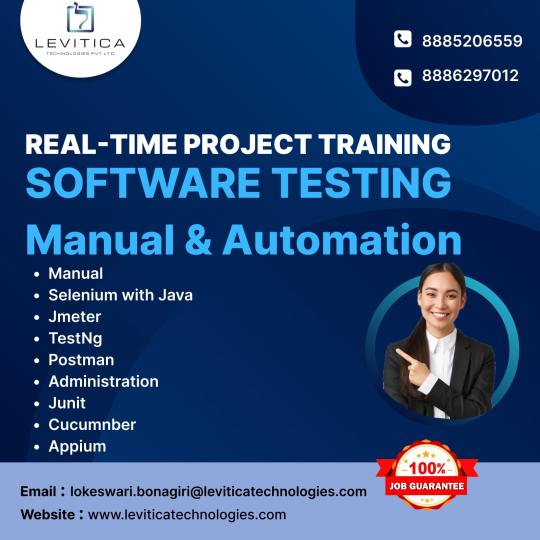

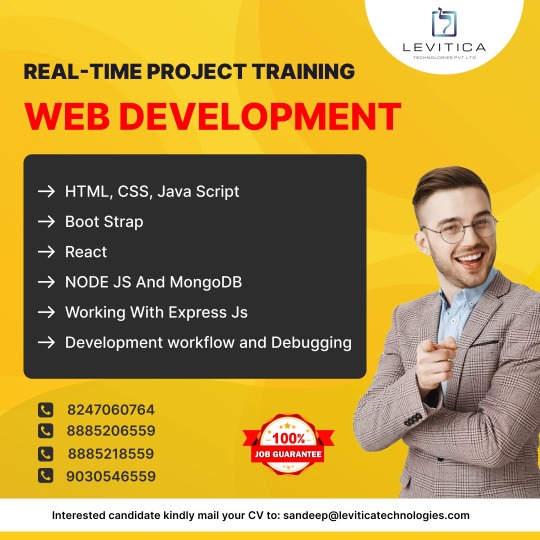
Levitica Technologies Pvt Ltd, established in 2013, specializes in web development and testing. We have branches in Hyderabad and Rajahmundry; the Hyderabad office focuses on project execution, while the Rajahmundry branch is dedicated to training and placement services.
#software companies in rajahmundry#Software Development Companies in Rajahmundry#Software Companies in Andhra Pradesh#Software Trainings in Rajahmundry#Software Course Training in Rajahmundry#Software Testing Courses in Rajahmundry#Full Stack Development in Rajahmundry#Digital Marketing Course in Rajahmundry#AWS Course in Rajahmundry#Devops Course in Rajahmundry#Linux Course in Rajahmundry#Best Software Training Institute in Rajahmundry#Best Placement Provider in Rajahmundry
2 notes
·
View notes
Text
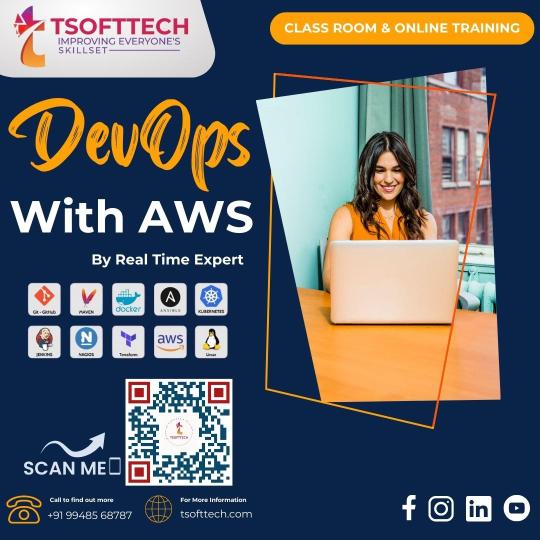
Tsofttech is a One of the best quality training center for online, Classroom and Corporate trainings In Hyderabad . We are providing DEVOPS Online Training through world wide. Tsofttech is excellent DEVOPS Training center in Hyderabad. After course we will give support for certification, Resume preparation and how to prepare for interviews.
For More: https://tsofttech.com/devops-online-training
Attend Free Demo On DevOps With AWS Sign Up Now: https://bit.ly/3rp0W84 To Boost Your IT Career to Next Level by Expert Faculty's. Register now to reserve your spot.
3 notes
·
View notes
Text
Unlock Your Future with DevOps AWS Courses in Hyderabad – IntelliQ IT
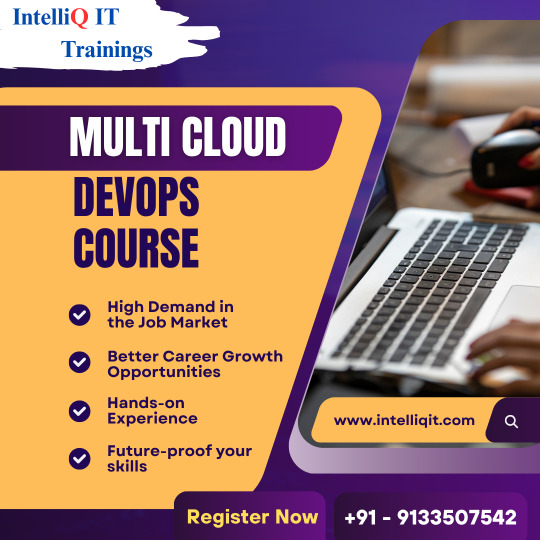
In today’s rapidly transforming IT industry, DevOps has emerged as a must-have skillset for professionals aiming to bridge the gap between development and operations. Hyderabad, being a top IT hub in India, is witnessing a growing demand for skilled DevOps professionals. If you're exploring top DevOps institutes in Hyderabad or looking to upskill with DevOps AWS courses in Hyderabad, you're on the right path to shaping a lucrative and future-proof career.
Why Choose DevOps?
DevOps is a culture and set of practices that bring development and operations teams together to shorten the development life cycle and deliver high-quality software continuously. By adopting DevOps, organizations improve productivity, enhance deployment frequency, and reduce the rate of failure for new releases.
Professionals skilled in DevOps tools like Docker, Kubernetes, Jenkins, Ansible, Terraform, and cloud platforms like AWS are in high demand across startups, MNCs, and tech giants.
The Rising Demand for DevOps and AWS Skills
With companies migrating their infrastructure to the cloud, AWS (Amazon Web Services) has become the leading cloud services provider. Integrating AWS with DevOps tools allows organizations to automate deployments, monitor systems, and scale applications effortlessly.
Learning DevOps with AWS is no longer a luxury—it’s a necessity. Hyderabad’s tech ecosystem demands certified professionals who can seamlessly integrate DevOps methodologies on AWS platforms.
DevOps Institutes in Hyderabad: What to Look For
When searching for DevOps institutes in Hyderabad, it’s essential to consider:
Comprehensive Curriculum: Ensure the course covers both foundational and advanced DevOps tools, cloud integration (especially AWS), CI/CD pipelines, and containerization technologies.
Hands-on Training: Practical exposure through real-time projects, labs, and case studies is critical for mastering DevOps.
Expert Trainers: Learn from certified trainers with industry experience in DevOps and AWS.
Placement Assistance: Institutes that offer resume building, mock interviews, and placement support can significantly boost your job prospects.
IntelliQ IT: A Trusted Name in DevOps AWS Training
Among the top DevOps institutes in Hyderabad, IntelliQ IT stands out for its dedication to delivering industry-relevant training. IntelliQ IT offers a well-structured DevOps AWS course in Hyderabad, designed for freshers, working professionals, and IT enthusiasts. The course not only covers key DevOps tools but also includes extensive AWS integration, ensuring you're job-ready from day one.
With a focus on real-time projects, practical labs, and expert mentorship, IntelliQ IT helps you build the confidence and skills required to crack interviews and succeed in the DevOps domain.
Key Features of IntelliQ IT's DevOps AWS Course:
In-depth coverage of AWS services like EC2, S3, IAM, CloudFormation, and more.
Practical training on CI/CD tools like Jenkins, Git, and Docker.
Live projects simulating real-world scenarios.
100% support in resume building and job placement.
Flexible batch timings including weekend and online classes.
Conclusion
If you are serious about your IT career, enrolling in DevOps AWS courses in Hyderabad is a smart investment. The synergy of DevOps and AWS is creating unmatched opportunities for tech professionals, and choosing the right institute is the first step toward success.
For quality-driven training with real-time exposure, IntelliQ IT is a name you can trust among the top DevOps institutes in Hyderabad. Take the leap today and power your career with cutting-edge skills in DevOps and AWS.
#devops training in ameerpet#devops training hyderabad#devops in ameerpet#devops course in hyderabad#aws institute in ameerpet
1 note
·
View note
Text
Haha
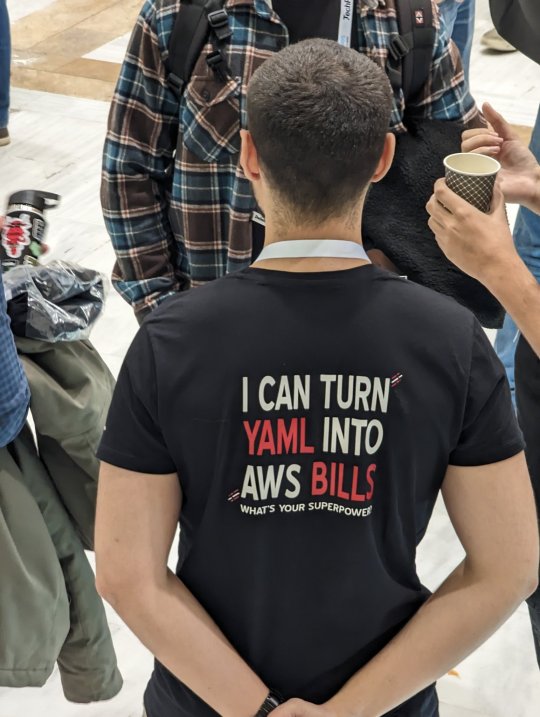
66 notes
·
View notes
Text
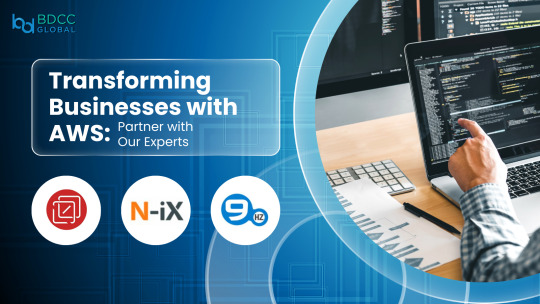
Elevate your business with AWS: Join forces with our expert team and unlock unprecedented growth and innovation. Let's transform together! https://www.bdccglobal.com/top-aws-consultants/
2 notes
·
View notes
Text
🚀 Master DevOps with AWS – New Batch Starts 19th June! 🚀
Hey tech enthusiasts! Ready to dive into the world of continuous integration, cloud automation, and cutting‑edge deployment pipelines? Join our DevOps with AWS live training, led by industry expert Mr. Reyaz, starting 19th June at 9:00 AM (IST). Whether you’re a curious beginner or a developer looking to level up, this course covers everything you need to thrive in modern IT.
🔧 What You’ll Learn:
CI/CD Pipelines with AWS CodePipeline & CodeBuild
Infrastructure as Code using CloudFormation & Terraform
Containerization & Orchestration with Docker & EKS
Monitoring & Logging via CloudWatch & ELK Stack
Security Best Practices with IAM, KMS & VPC setups
Hands‑On Projects reflecting real‑world scenarios
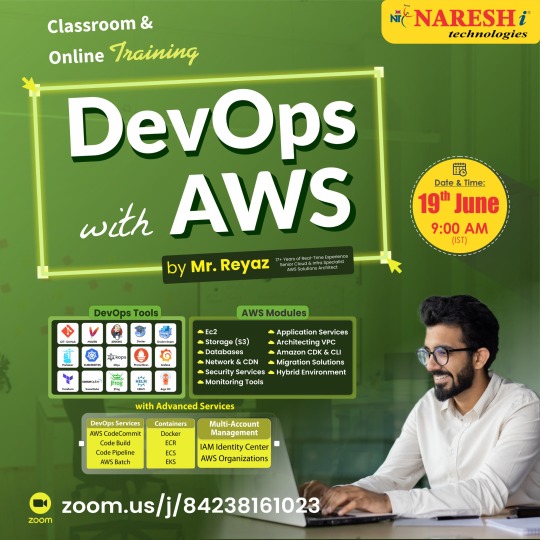
💡 Why Enroll?
Live, interactive sessions with Mr. Reyaz
Step‑by‑step labs you can pause & replay
Real‑time Q&A and doubt‑clearing support
Placement assistance to help you land that first DevOps role
🔗 Register for Early Seats – Don’t Miss Out! 👉 https://tr.ee/f3bN5E
✨ Explore even more free demo courses: 📚 https://linktr.ee/ITcoursesFreeDemos
Don’t just learn DevOps—live it. Automate your deployments, secure your cloud, and become the go‑to DevOps pro in your team.
0 notes
Text
🚀 Is your business ready for the digital future?
In 2025, resilience isn’t just about surviving cyber threats or system failures — it’s about thriving in a fast-paced, always-online world.
That’s why Cloud Migration Services are no longer a “nice-to-have” — they are a strategic necessity.
In my latest blog, I’ve broken down: ✅ Why digital resilience is vital in 2025 ✅ How Cloud Migration Services support security, flexibility, and business continuity ✅ The benefits of scalability, compliance, and cost efficiency ✅ Key migration strategies and future trends you can’t ignore
💡 Whether you're a small business or a growing enterprise, this guide will help you understand how the right cloud approach can shape your future.
#devops#devops consulting#cloud services#aws devops#cybersecurity#devopsservices#compliance#cloudinfrastructure#devops services
0 notes